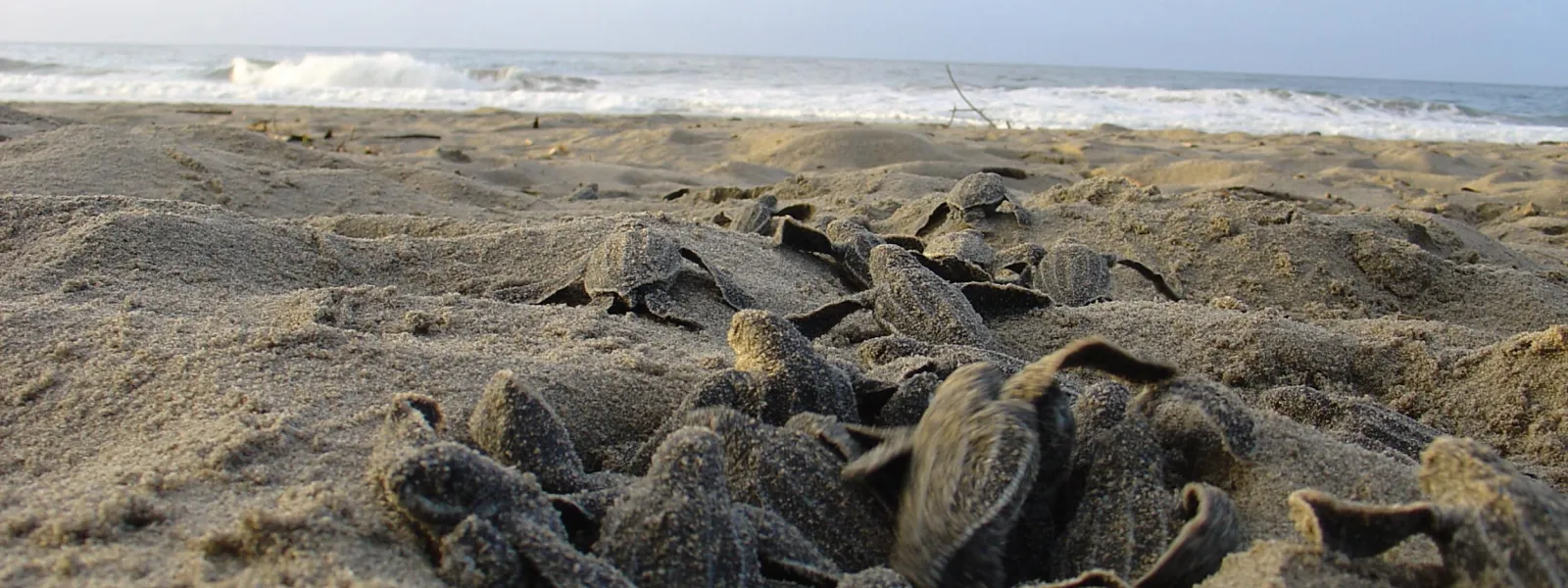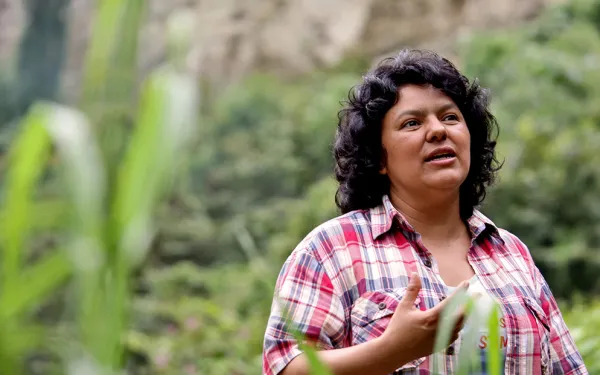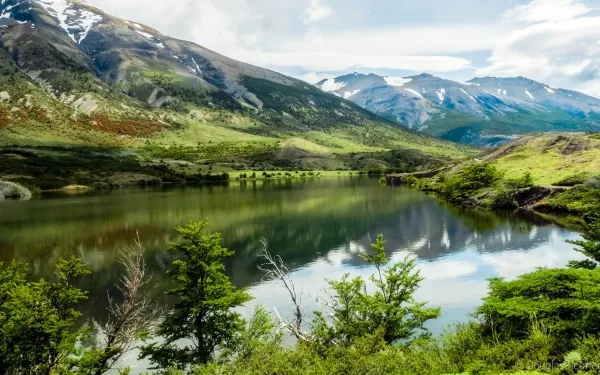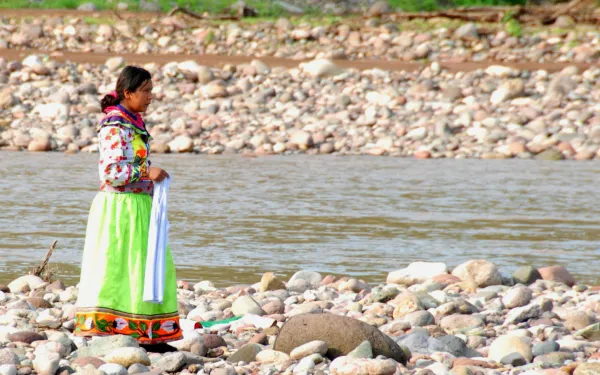
Project
Victory: Haven for leatherback sea turtles declared off-limits
In two separate rulings in May 2008, the Costa Rican government stood up for endangered leatherback sea turtles against business interests intent on building within their protected habitat.
A relative of dinosaurs, the endangered leatherback sea turtle has continually found its home in Costa Rica under threat. Poor planning and lack of oversight destroyed its nesting beaches in Flamingo and Tamarindo.
This time developers had their eye on the Leatherback National Marine Park (LNMP), home to some of the most important Leatherback nesting beaches in the Eastern Pacific Ocean.
A municipal zoning regulation was enacted that would authorize construction in part of the LNMP. However, AIDA and its local partner CEDARENA, together with the Leatherback Trust, successfully defended the park.
The Constitutional Chamber of the Costa Rican Supreme Court nullified the municipal zoning regulation, safeguarding the Leatherback sea turtles and their nesting beaches. This ruling closely followed another court victory by AIDA, CEDARENA, and Justice for Nature that required the government to expropriate the private lands within the LNMP, otherwise destined to be tourist playgrounds.
The leatherback sea turtle will continue to face threats from tourism development, fishing, egg poaching, and pollution. However, AIDA and its partners have shown that the law can be used to make a powerful difference.
Related projects

Public letter to President of Honduras on the killing of Berta Cáceres
Dear President Juan Orlando Hernández, We, a group of 50+ international organisations, write to express our shock and concern over the recent killing of Berta Cáceres, environmental activist and head of the indigenous rights group COPINH. As you will know, Mrs Cáceres was shot dead by gunmen in the late hours of 2 March 2016. Over the years she had received multiple death threats and attempted kidnappings because of her work defending indigenous Lenca land against the Agua Zarca dam project in Río Blanco. These threats had escalated in recent weeks since construction of the dam had restarted. We demand an independent international investigation into the circumstances around Mrs Cáceres’ death, and guaranteed protection for her family and colleagues. Mrs Cáceres was granted emergency protection measures by the Inter-American Commission on Human Rights because of her acute vulnerability, but she claimed the Honduran state did not fully implement them. We also demand urgent action to protect Gustavo Castro Soto, a Mexican activist who witnessed her assassination, and to ensure his safe passage back to Mexico. Mrs Cáceres’ case is the most high-profile killing within a growing trend in the murder, violence and intimidation of people defending their indigenous land rights in Honduras. Honduras is the world’s most dangerous country per capita to be an environmental or land defender, with at least 109 people killed between 2010 and 2015. Mrs Cáceres’ case has not escaped international attention. In a statement issued in response to her death U.S. Senator Patrick Leahy called on you to find and punish those responsible for “this despicable crime.” Last year, US Senator Barbara Boxer wrote a letter to US Secretary of State John Kerry urging for better protection of environmental defenders in Honduras. This was in direct response to Mrs Cáceres winning the 2015 Goldman Environment Prize – a prestigious award recognizing grassroots environmental activists from around the world. News of her death has generated substantial international media attention. The 50+ international organisations listed below call on the Honduran state to ensure indigenous peoples’ right to their land is respected and that they are able to carry out their legitimate work without fear for their safety.
Read more
The Invaluable Legacy of Douglas Tompkins
By Florencia Ortúzar, AIDA attorney On December 8th, one of the last pristine places on the planet, Patagonia, lost one of its greatest protectors, Douglas Tompkins. At 72 years old, the conservationist and multimillionaire lost his life in a kayaking accident. Much has been said about the eccentric man who sold the companies that made him rich, and left it all behind to undertake an ambitious conservation project in Chile and Argentina. It was looked on with suspicion when he began frantically buying lands in the Southern Cone for the sole purpose of protecting them. Tompkins thought that effective conservation should be “extensive, wild and connected.” So he decided to create large national parks that would be protected even in his absence. To do so, he acquired large tracts of land and began returning them to their natural state, removing fences and recuperating ecosystems. Without fences, wildlife could move freely, a condition which is fundamental for their prosperity. Donating in exchange for protection Barely more than a month after she was widowed, Kris Tompkins, Doug’s wife for 20 years, met with Chilean President Michelle Bachelet to offer the donation of more than 400 thousand hectares of land in Chilean Patagonia, including millions of dollars in infrastructure. With it, she sought to realize the last of the couple’s major projects in Chile: the creation of Patagonia Park, which together with other lands, donated or in process of being donated, would form a network of parks in Patagonia. In Chile, the Tompkins had already donated land for the creation of Corcovado Park in Patagonia and Yendegaia Park in Tierra del Fuego. The land to create Pumalín Park, also in Patagonia, is in the process of being donated. All together, these land donations equal more than 500 thousand hectares of protected wilderness. But the Tompkins’ gifts come with conditions: for each hectare they receive, governments must protect a certain number more. In exchange for the posthumous donation in Chile, for example, the government is required to create new national parks, expand existing parks and reclassify four natural reserves. Negotiations are expected to conclude in 2018. If the Tompkins’ succeed, the agreement will create the most important network of national parks in the country. Protection in Argentina Tompkins also donated vast stretches of land in Argentina. In the Entre Ríos Province, he started a soil recuperation project, using highly diversified organic crops to overcome the damage of industrial monoculture. The Argentine Patagonia also received protection, through land donations of 66 thousand hectares to Monte Leon National Park and 15 thousand hectares to Perito Moreno National Park. Tompkins’ last project in Argentina was completed last December when the Argentine government met with Kris Tompkins to accept the donation of 150 thousand hectares of land in the Estuaries of Iberá, the second largest wetland on the planet. This area, when added to the 50 thousand hectares previously donated and the 500 thousand that already form Iberá Park, will create one of the largest reserves in the country. ¡Patagonia sin Represas! In addition to contributing to the creation of national parks, Tompkins supported the activism of conservation groups in Patagonia. One of the initiatives he sponsored was the campaign Patagonia sin Represas, which managed to stop the HidroAysén project in its tracks. HydroAysén had aimed to construct five mega-dams on the Baker and Pascua rivers, two of the largest free-flowing rivers in Chile, located in the heart of Patagonia. During Doug’s burial the mantra “Patagonia sin Represas” is said to have been shouted by mourners when the last handful of dirt was thrown upon his grave. At the end of the 1900s, when Tompkins’ land purchasing in Argentina and Chile was at its peak, he was accused of buying the land cheaply and displacing its inhabitants, leaving them without work. Later, the accusations became more sophisticated: they accused him of buying land to create a new Zionist state, of being a CIA spy, and of trying to seize enormous reserves of fresh water to export to places experiencing drought. Many looked upon his work with suspicion. Maybe they found it difficult to believe that someone would invest millions of dollars with the sole objective of preserving the perfect natural harmony that surrounds us. Any accusation was easier than giving credit to his true intention: buying land to prevent it from being exploited, and then giving it back to the government, not for money, but for a commitment of protection. Whatever his detractors may say, here in reality, Douglas Tompkins left an enormous legacy to all of mankind. He has conserved more land than any other person in the history of Chile and Argentina. His work has translated into massive patches of green on the maps of Patagonia. For those pristine and wild places, we are eternally grateful. CONGRATULATIONS DOUG, and THANK YOU!
Read more
Indigenous groups ask Pope Francis to help stop Las Cruces Dam
In a letter delivered to Vatican representatives, indigenous and riverine communities affected by the construction of a dam on Río San Pedro Mezquital asked that the Pope intercede on their behalf before the Mexican government during his visit to the country. They explained that the hydroelectric project would cause serious harm to the environment and human rights. Mexico City, Mexico. On the occasion of Pope Francis’ visit to Mexico, indigenous and riverine communities from Nayarit state wrote a letter asking the Pope to intercede on their behalf before the Mexican government, in hopes of putting a stop to the Las Cruces Dam project on Río San Pedro Mezquital. The project, they explain, puts at risk their culture and way of life, and also threatens Marismas Nacionales, one of the country’s most important wetlands. The letter was delivered to the local headquarters of the Apostolic Nunciature, a diplomatic mission of the Vatican. It reads: … We respectfully solicit that you, Your Holiness, during your visit to our country, intercede on our behalf before President Enrique Peña Nieto, so that his Government stops the human rights violations of all indigenous communities in the name of development, and that it abandon further advancement of the Las Cruces hydroelectric dam because of the human and environmental impacts it will cause. Mexico’s Secretary of the Environment and Renewable Natural Resources (SEMARNAT) has granted environmental permits and water rights for the construction and operation of the dam. “They did so without having guaranteed the right to prior consultation of the indigenous communities affected by the project, which include the Náyeri, Wixárica, Mexicanero and Tepehuano peoples,” explained Sandra Moguel, AIDA attorney. “SEMARNAT authorized the project with the condition that the Secretariat of Energy realize a process of consultation with the indigenous communities, which should have been done before issuing the authorizations.” In their letter, the indigenous communities honor and celebrate Pope Francis’ encyclical, Laudato Sí, in which he recognizes the important contribution indigenous communities can make towards the promotion and protection of culture and natural resources. “The Río San Pedro is not simply part of our lives, but also fundamental to our spirituality,” explained Julián López Cánare, member of the Náyeri Indigenous Council, who delivered the letter. “All of its territory, from its headwaters to its mouth, is a sacred space where we strengthen our identity and values.” This river also feeds Marismas Nacionales, one of Mexico’s most important wetlands. The area is recognized as a Biosphere Reserve and a Wetland of International Importance under the Ramsar Convention, an intergovernmental treaty for the protection of wetland ecosystems. Finally, the indigenous communities explained in their letter that the pressure put on them to agree to the project has escalated to include harassment and illegal detentions by the government. They also cite instances of acts simulating consultation, which would not be valid considering the project has already been authorized. Citing the visions for the future they share with Pope Francis, the letter finished: Your Holiness, hopeful in the power of your intercession, we part here with the passionate hope that your encyclical letter, Laudato Si’, inspires and propels profound changes in politics, practices, and beliefs of governments, businesses, civil society, and the mentality of our fellow man, with hopes of constructing a more just, more humane, and truly sustainable world.
Read more